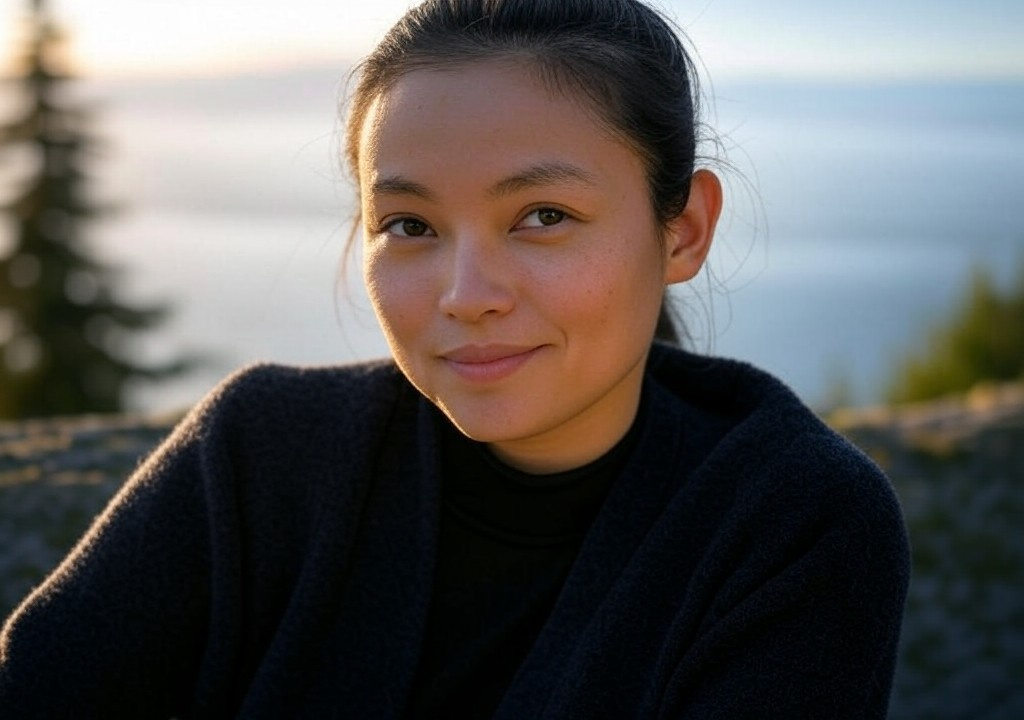Why We Choose: Love, Work, and Everything in Between
Somewhere in my late twenties—while I was sipping a lavender latte in a sunlit Kitsilano café, watching tourists marvel over the mountains—I realized I’d spent more time wondering why someone ghosted me after a third date than contemplating why I chose to write about love in the first place. Isn’t that the way? We reflect more about the people we’re chasing than why we started the chase to begin with.
The truth is, the “why” behind what we choose—be it a person, a career, or that overpriced oat-milk matcha—matters. It shapes the way we move through the world. And for me, walking the road of writing about love, relationships, and people, it always comes back to one thing: the belief that connection is what gives our seemingly chaotic lives meaning.
Part I: The Romantic Antihero Origin Story
If we’re being real (and here, we always are), I didn’t exactly leap into relationship writing with a Carrie Bradshaw-inspired flourish. In high school, I was less "dating whisperer" and more "third-wheel specialist." My idea of romance involved meticulous AIM conversations over a dial-up internet connection and awkward dances at community centres where Gnarls Barkley’s “Crazy” somehow always blasted in the background.
But as much as I felt like a perpetual supporting character in someone else’s rom-com, I was captivated by the nuances of connection. I’d sit in my family’s café after school, watching couples—some holding hands like they were tied together and others scrolling their phones in total silence. I’d overhear whispered arguments, giggles that turned into fits of laughter, and quiet words of support exchanged over steaming cups of coffee. The café felt like a real-life rom-com set, with a lot less orchestral music and a lot more oat milk.
Still, I thought writing about love would mean proclaiming some grand mastery over it. Back then, I was barely capable of interpreting a Facebook poke as flirting. Why would anyone trust me to tell them how to navigate a crush or a communication breakdown?
It wasn’t until much later—during university—that I realized writing about love isn’t about knowing all the answers (plot twist: no one does). It’s about trying to make sense of all the feelings that can overwhelm us, leave us hopeful, or even break us apart. It’s about understanding why we keep showing up for each other, even when getting it right often feels like cracking a code written in a language only Taylor Swift albums truly understand.
Part II: From Coastal Sand to Keyboard Strokes
I spent a summer in Tofino—working mornings at a surf shack and afternoons riding impossibly tiny waves—and realized just how much the art of love parallels the ocean. (Bear with me here.) Relationships are like the tides: sometimes stable, sometimes wild, but always shifting. Writing about them? That’s how I learned to ride out the waves instead of fighting them, because dear reader, resistance only makes you wetter.
When you grow up in a family café, study creative writing, and live next to the Pacific Ocean for most of your life, you start to realize that life is inherently messy. Love, companionship, ghosting, heartbreak—it’s all part of the beautifully disorganized mosaic. And you know what? That’s its charm. Somewhere in that mess, we find ourselves and each other.
Part III: Why This Path? Beyond the Meet-Cute
Asking me why I chose to write about relationships is a bit like asking why my dad adds condensed milk to his Hong Kong-style milk tea: it’s just in my DNA. Growing up in a multicultural microcosm like Vancouver meant living in a constant current of intersections. My parents’ marriage blended traditional values with ultimate millennial chaos (cue my dad trying to send apology texts in English using only emojis). My friendships have flourished across languages and time zones. And my own failed, awkward, beautiful, hopeful love stories have turned out to be pretty stellar material.
Ultimately, though, I chose this path because love is one of the few universal experiences we all recognize, even if we experience it in wildly different ways. It’s the thread that connects someone panic-calling their best friend after a fight, a worried new parent gazing at their baby, or two strangers sharing an umbrella in pouring rain. Writing about it feels like carving meaning out of the madness—like saying, “Hey, you’re not alone. We’re all just fumbling our way through this weird, wonderful ride.”
Part IV: What This Work Taught Me (So Far)
If there’s one thing that immersing myself in love stories (mine, yours, fictional ones, and the heartbreaking ones I overhear in line at Whole Foods) has taught me, it’s this:
-
Good relationships don’t just happen: Your dream connection doesn’t have Amazon Prime shipping—it takes time, intention, and effort. This isn’t groundbreaking, but it’s a truth we forget while scrolling through social media highlight reels of #CoupleGoals.
-
You’re allowed to outgrow people: Whether it’s an ex, a friend, or a version of yourself you no longer recognize, letting go doesn’t equal failure. It’s growth. It’s hard, messy growth—like the time I overwatered my begonia and cried at it—but it builds a better future.
-
We love (and hurt) in uniquely human ways: Romantic comedies love to tell us that love is one-size-fits-all—that a grand gesture will always save the day or a perfect montage will fix everything. But real love? It’s quiet as much as it’s loud. It’s a patchwork you create over time, stitched with apologies, Spotify playlists, late-night truths, and learning how to snack together in total comfort.
Part V: Words as Connection
As cheesy as it sounds—and good cheese should always be celebrated—writing about love doesn’t feel like work. It feels like leaning into our humanity. A lot of what happens in dating and relationships can make us feel incredibly vulnerable, and in a way, so does putting words to feelings. Every article, every story, every tongue-in-cheek metaphor helps readers (and me!) peel back layers of uncertainty and self-doubt. It’s hard to hate on a job that’s basically therapy… except way cheaper.
Conclusion: Why We Choose at All
At the end of the day, whether you’re writing about love, embarking on a new relationship, or navigating yet another Why Did I Text Him First spiral, the point is the same: showing up matters. Choosing to connect matters. Even when it’s scary, even when it doesn’t go as planned.
So, why did I choose this path? Because love, in all its forms, is worth trying to understand. Because the things that terrify us—heartbreak, vulnerability, conflict—are also the very things that make life rich and meaningful. And maybe, just maybe, if I can tell my stories and share what I’ve learned, it’ll help someone else make just a little more sense of their own.
And if nothing else, at least I can always blame my dad’s café for unveiling this lifelong obsession with eavesdropping on how people connect over coffee.
Now, your turn: Why do you choose the paths you do? You might just surprise yourself with the answer.




















